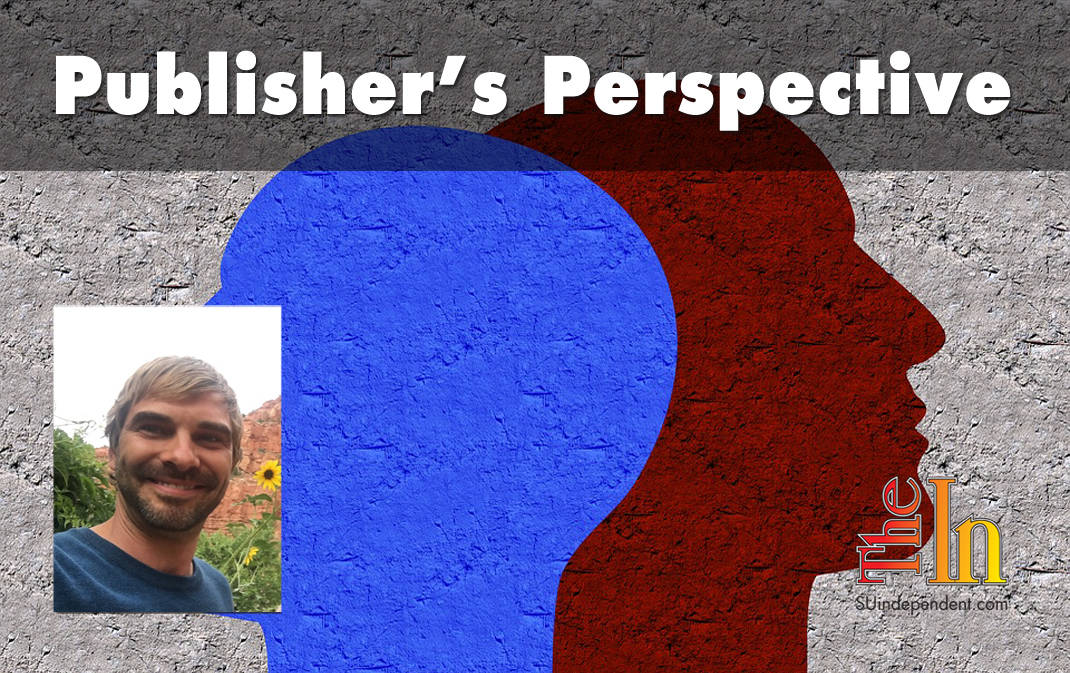 We all have people who we disagree with. Specifically when it comes to politics.
We all have people who we disagree with. Specifically when it comes to politics.
It’s easy to understand why. Politics are about the laws and regulations on life, liberty, and the pursuit of happiness.
The struggle is real, as we say in our home quite often, and we all have our own. Many of us are afraid. And many of us have been fearful of the future for a long time. Either you’ve been stuck feeling as if life is not getting better and fearful of the future or have just started to be fearful of what the future in America looks like under a Trump presidency. Unfortunately, fear is one of the strongest emotions we possess, and it’s very often used to manipulate. It’s something that can be hard to admit, but give it some thought and you very likely fall into one of those groups or the other (or possibly a third group, but we’ll get to that in a bit).
And we all want to live a good life — a better life, in fact. Is life fair? Is the deck stacked against us? Many feel that it is. And many also feel that the government plays a role in influencing just how stacked it is. But something to think about is that “government” is made up of us. They’re people. And they’re people who are largely doing the best they can based on their own life experiences and with the information they have. People, like you and me (as most of you know I just ran for office).
When it comes to the state of our country, we seem split between being happy with the direction we are going and not being happy with it, and as of late many more seem unhappy. Being dissatisfied with the status quo is nothing new and has occurred over and over, even in recent American history. Since 1953, the party controlling the White House has changed eight times in 16 presidential election cycles. So historically, in most of our lifetimes, the power has shifted away from the party in charge half of all the times that it possibly could. It seems that a majority (depending on how you calculate it) become unhappy with whom we’ve elected rather quickly. We’re a fickle bunch. One professor who predicted back in September that Trump would win uses a unique system to make his presidential predictions that includes measuring the discontent of the American public. Maybe not so coincidentally, he’s also accurately predicted every presidential winner since 1984 with his system. They say familiarity breeds contempt. So it seems that when we finally get really familiar with the party in power, we tend to become unhappy with it. But I digress.
This divisiveness seems bigger than ever. People seem further apart. But how has this happened? The internet was supposed to bring us to a new age of understanding of our differences. With literally millions and millions of research papers, newspaper articles, blogs, videos, and more, you’d think each of us would have a better opportunity to hear and understand viewpoints different than our own. Unfortunately, that does not to be the case. But why? Are we as humans built to have conflict? Disagreements? Maybe. It is almost certainly in our DNA that we would have dissent. This could probably be pointed to as one of the characteristics we as humans have utilized to progress to the evolutionary top of the heap. It’s valuable to question. It helps us get to the best results for the group. So it’s seemingly innate. But so is cooperation. We wouldn’t be where we are today without significant cooperation, so while we are built to disagree, we’re also designed to resolve conflict for the greater good of the group.
So while disagreements are normal, recognize that the subject of an argument is often not the real issue. It’s a symptom, and just like treating the actual cause rather than the symptom, you need to ask what the underlying interests or fears are. Here’s the important part: To do that, we need to have empathy for the person on the other side of the argument. We need to see them as human, too, and that, like us, they are likely feeling some kind of agitation or fear around that issue.
So how do we come to a resolution or simply a better understanding of a differing viewpoint? Well, here’s an idea that came to me recently, and I’m sure I’m not the first to think of it. Try to think of working on your relationships with people who hold opposing viewpoints the way you think about your relationship with your spouse, and for the same reason, you care about them. Don’t you?
What things that you do are helpful when resolving conflict? How about name-calling? Does that work well with your significant other? I bet not. Do you listen to your partner and let them freely express their concerns without judgment? Do you tell them you hear them? That you understand their feelings? That it must be scary? Upsetting? Difficult? If you do, you probably make a pretty good partner, and you might have what it takes to be empathic toward any other person’s opinions or thoughts. And I think most of us do, as most of us do seem to have these capabilities with our partners. We just need to extend that level of patience, listening, and empathy to those with whom we are not so close. When we do, and I believe we can all develop this skill, we may see how much more we are alike than we are different.
So just how do we do that? To healthfully engage someone in a difficult discussion, try these few steps.
Thank them for their thoughts. Seriously, thank them for being willing to be a part of a difficult discussion. Many people aren’t. Tell them that you hear them; even note that you must be among friends because of their frankness. Tell them you’d genuinely like to better understand their thoughts and experiences. You can even try this with those who would purposely exclude or antagonize. It’s disarming. It’s not what most people expect, and many don’t even know what to do with it. But it’ll almost certainly get you closer to understanding the other’s viewpoint, which in turn gives you both a better understanding for the issue as a whole and might even strengthen your argument. And it will also give you more empathy for another human’s journey, fears, and plight. And that’s how we get there: You extend the olive branch.
The burden to reach out falls on every one of us, and while you can’t control how the other person is going to deal with you, you can control how you react to and treat them. Be willing to be vulnerable and honest, and listen to people with different views. It’s what it’s going to take for us come together more and certainly is a key to healthier relationships, inside and outside the home. Be well!
Articles related to “How resolving conflict with others is like being in a relationship”
Eight ways to fortify marital bonds and rekindle your marriage



